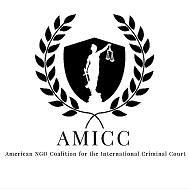In
both his more recent post, “The ICC’s Crisis Mentality and the Limits of Global
Justice” and in a late-February publication entitled, “Yes, the ICC is in
Crisis. It Always Has Been,” Mark Kersten of Justice in Conflict asserts that the ICC is not only an institution
in crisis, but that it is one that needs to be in crisis. By definition,
“crisis” typically refers to an acutely dangerous or life-threatening situation
that often constitutes a decisive moment. To say that the ICC is in constant
crisis is a serious misuse of the term.
The
Court does face – and is currently addressing – issues impeding its
development. Contrary to Kersten’s claim that the Court has failed to acknowledge
its limits, ICC Prosecutor Fatou Bensouda has expressly identified challenges
in front of the Court. Bensouda has drawn particular attention to the issue of
inadequate resources. Lack of sufficient resources and an inadequate budget
hinder the Court’s ability to maintain and ensure high quality trial conduct. Without
the necessary resources, the Court’s outreach efforts are also compromised. The
Office of the Prosecutor (OTP) is currently making efforts to meet this challenge.
Specifically, the OTP’s Strategic Plan for June 2012 – 2015 proposes three
budget increases over a period of four years. With resources appropriate to
match the ever-increasing number of preliminary examinations, investigations
and prosecutions, the Court will be better equipped to execute its mandate.
The
issue of resources is connected to the problem of enforcement. Without a police
force or military of its own, the Court relies heavily on the cooperation of States.
The Court can only reach its full potential when it has the unprejudiced assistance
of States, and from the United Nations Security Council (UNSC) when it refers cases
to the ICC. When collaboration is lacking, the Prosecutor does not hesitate to say
so. As recently as this week, Bensouda has drawn attention to the non-cooperation
of the UNSC and member states regarding the Security Council’s referral of the situation
in Darfur.
In
his more recent blog post, Kersten also asserts that the ICC “tends to
pragmatically align itself with the interests of the UN Security Council and
States Parties by only focusing on one side of the conflict.” The situations from
which this accusation may arise do present particular challenges for the Prosecutor.
For example, a delicate situation can arise when available evidence dictates
that charges must be brought against a member of government that has brought a
case to the ICC. In the same vein, if appropriate evidence is present for one side
in a case but not another, the Prosecutor faces a unique quandary. Should the Prosecutor
proceed with the available evidence? Should the Prosecutor risk jeopardizing an
involved person’s right to a trial without undue delay by deferring the case until
such evidence exists on the opposing side? Although one cannot deny the legitimacy
of these challenges, their existence does not indicate bias by the Prosecutor toward
one particular side of a conflict.
Just
as bias does not exist toward one side or another in a particular case, bias does
not exist in the process by which situations are chosen by the Court. Kersten declares
that “the ICC has been unable or unwilling to open official investigations into
states outside of the African continent.” To date, it is true that five African
states have requested that the ICC start investigations into their territories.
However, equally relevant is the OTP’s current conduct of preliminary
investigations into seven situations outside of the continent.
Ultimately,
although Kersten is right in his identification of some difficult ICC issues, he
is mistaken in claiming that such challenges constitute a crisis for the Court.
Instead, they are an inherent and continuing part of the Court’s work for which it must
find permanent ways to confront.
Written by Michaela Connolly

